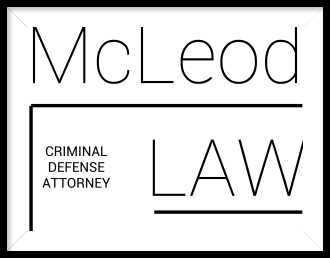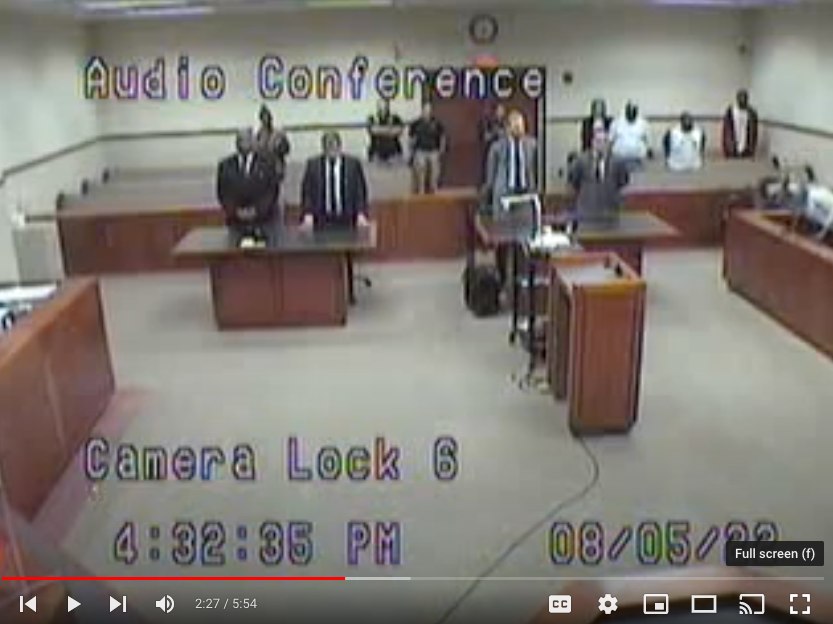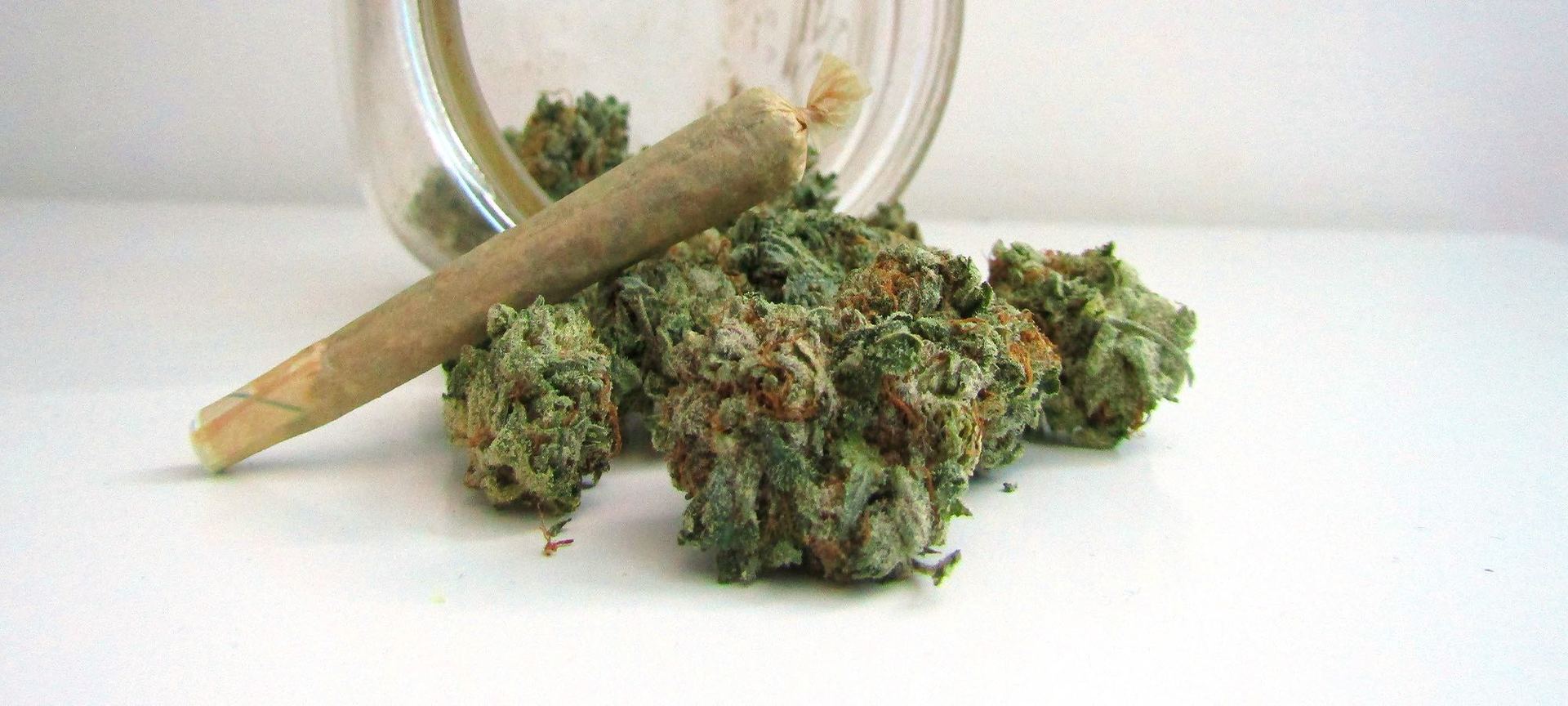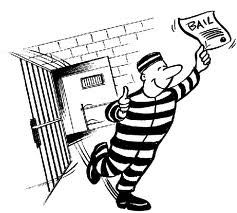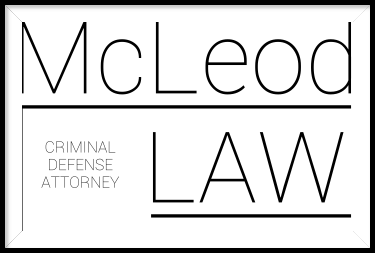DUI ATTORNEY IN OWENSBORO
The Best DUI Attorney in Owensboro with 20 years experience in Driving Under the Influence Cases in the Owensboro Criminal Defense Attorney, best criminal defense attorney in Owensboro, best criminal defense lawyer in Owensboro, Kentucky Criminal Defense Attorney, best criminal defense attorney in owensboro, DUI Attorney in Owensboro, Driving Under the Influence Attorney, DUI Lawyer in Owensboro, DUI Defense Lawyer in Owensboro, DUI Lawyer near me, Owensboro DUI Lawyer, Owensboro DUI Attorney, DUI Attorney near me, Best DUI Defense Lawyer in Owensboro, best dui lawyer near me, Best DUI Defense Attorney,
Kentucky dui defense lawyer
Arrested for DUI in Kentucky you are smart to call Brendan McLeod, the Owensboro DUI attorney. Mr. McLeod has won over 20 DUI Trials of his just over 30 DUI cases and the losses he turned into a win! (he beat the offer on most). Mr. McLeod has won several Marijuana DUI Trials, too.
DUI Trials are tricky and every DUI Criminal Attorney will be confronted with plead to bad offer or risk criminal defense jury trial. Criminal Attorney Brendan McLeod found hilarity in a trial loss from a DUI 2nd Trial in Louisville, Kentucky. The client blew .18 and I could not get past such a high reading. We argued residual mouth alcohol which would cause the breathalyzer to read high. This was based upon the fact my client had full upper and lower dentures. When asked on the stand if residual liquid stayed in his mouth he answered, "most certainly." He took a drink of his Mountain Dew in front of the jury and then looked around a bit smacking his mouth. He then retorted while smacking his lips together, "yep, I still have that Mountain Dew in my mouth."
Judge Kevin Delahanty was acting as the Louisville DUI Judge said, "Brendan, why don't you have your client sit under the clock. I have a feeling they are going to ring the bell here." He is a very funny judge, really. However, the jury cam back during penalty phase and gave my client 10 days, the minimum on a DUI 2nd with aggravator. He already had 6 days in and the judge placed the 4 remaining days to serve on Home Incarceration.
((As a side, DUI 2nd and all multiple offenses have separate penalty phase. The jury when listening to the evidence is judging the case is to assume it is a DUI, and that is it. They are not entitled to know whether it is the person's 1st DUI, or the 100th DUI. If they convict and it is a DUI 2nd or subsequent, then you tell them at that point. They then go back and argue the sentence for the Driving Under the Influence 2nd / 3rd.../ Offense.))
kentucky dui lawyer - beat the dui charge
BEATING THE DUI:
If you have been arrested for driving under the influence (DUI), it is important to remember that you have the right to defend yourself against the charge. However, it is important to keep in mind that the chances of successfully beating a DUI charge will depend on the specific circumstances of your case and the laws in your jurisdiction.
There are a few potential defenses that may be raised in a DUI case:
- Lack of probable cause: The police must have a valid reason for stopping and arresting you for DUI. If the officer did not have probable cause to believe that you were driving under the influence, your attorney may be able to challenge the arrest and have the charges dismissed.
- Invalid breath or blood test: If the breath or blood test that was used to determine your blood alcohol concentration (BAC) was not conducted properly or the equipment was not calibrated correctly, your attorney may be able to challenge the accuracy of the test results.
- Medical conditions: Certain medical conditions, such as acid reflux or diabetes, can produce symptoms that are similar to those of being under the influence of alcohol. If you have a medical condition that may have affected the test results, your attorney may be able to use this as a defense.
- Police error: If the police made mistakes during the investigation or arrest, your attorney may be able to use this to your advantage in court.
It is important to note that these are just a few potential defenses that may be raised in a DUI case. Every case is different, and the best course of action will depend on the specific circumstances of your case. If you have been charged with DUI, it is important to consult with a qualified criminal defense attorney who can advise you on the best course of action.
beat the breathalyzer 5000
Beating the Breathalyzer 5000:
- The Breathalyzer 5000 is a device that is used to measure the blood alcohol concentration (BAC) of a person by analyzing the alcohol content in their breath. When a person blows into the Breathalyzer, the device captures a sample of their breath and uses a chemical reaction to determine the amount of alcohol present.
- The Breathalyzer 5000 works by using a fuel cell, which is a type of electrochemical device that converts chemical energy into electrical energy. When a person blows into the Breathalyzer, the alcohol in their breath is directed over the fuel cell. As the alcohol molecules come into contact with the fuel cell, they react with the chemicals inside, creating an electrical current. The strength of the electrical current is proportional to the amount of alcohol present in the breath sample.
- The Breathalyzer 5000 is able to measure BAC levels down to 0.005%, which is well below the legal limit for driving in most states. The device is calibrated to accurately measure BAC levels within a certain range, and the results are displayed on a screen or printed on a piece of paper.
- It is important to note that breathalyzer devices can sometimes produce false positives or false negatives, and the results of a breathalyzer test should not be considered conclusive evidence of a person's BAC. If you have been charged with driving under the influence, it is important to consult with a qualified criminal defense attorney who can advise you on the best course of action.
Should you take the breathalyzer?
Whether or not you should take a breathalyzer test if you are charged with driving under the influence (DUI) depends on a number of factors, including the laws of your jurisdiction and the specific circumstances of your case.
In most jurisdictions, it is illegal to operate a vehicle while under the influence of alcohol or drugs. If you are stopped by a law enforcement officer and suspected of DUI, you may be asked to take a breathalyzer test to determine your blood alcohol concentration (BAC). If you refuse to take the test, you may face additional penalties, such as a license suspension or revocation.
On the other hand, if you do take the breathalyzer test and your BAC is above the legal limit, you may be charged with DUI and face criminal penalties, such as fines, jail time, and a license suspension.
It is important to consult with an attorney if you have been charged with DUI to understand your rights and options. In some cases, it may be advisable to refuse the breathalyzer test, while in other cases it may be better to take the test and challenge the results in court. The best course of action will depend on the specific circumstances of your case.
beat the field sobriety tests
FIELD SOBRIETY TESTS AUTHORIZED BY NHTSA:
Field sobriety tests (FSTs) are a group of tests that law enforcement officers use to assess whether a driver is impaired by alcohol or drugs. These tests are often used during a traffic stop to determine whether a driver should be charged with driving under the influence (DUI).
While field sobriety tests can be useful in helping law enforcement officers determine whether a driver is impaired, they are not always accurate. Factors such as the officer's training and experience, the conditions of the stop (e.g., lighting, weather), and the driver's physical condition can all affect the accuracy of the tests.
There are three standardized field sobriety tests that have been developed by the National Highway Traffic Safety Administration (NHTSA): the horizontal gaze nystagmus test, the walk-and-turn test, and the one-leg stand test. These tests have been shown to be reliable indicators of impairment when administered correctly, but they are not foolproof and can be challenged in court.
It is important to note that you have the right to refuse to take a field sobriety test if you are stopped on suspicion of DUI. However, refusing a field sobriety test may result in additional penalties, such as a license suspension or revocation. It is advisable to consult with an attorney if you have been charged with DUI to understand your rights and options.
NON-STANDARDIZED FIELD SOBRIETY TESTS:
If you are pulled over on suspicion of driving under the influence (DUI), you may be asked to perform additional sobriety tests that are not standardized by the NHTSA. These tests may include counting backwards, reciting the alphabet, or touching your finger to your nose.
While these additional sobriety tests may be used by law enforcement officers to assess your level of impairment, they are not necessarily reliable indicators of impairment. Factors such as the officer's training and experience, the conditions of the stop (e.g., lighting, weather), and the driver's physical condition can all affect the accuracy of these tests.
It is important to note that you have the right to refuse to take a field sobriety test if you are stopped on suspicion of DUI. However, refusing a field sobriety test may result in additional penalties, such as a license suspension or revocation. It is advisable to consult with an attorney if you have been charged with DUI to understand your rights and options.
kentucky dui statutes
The DUI Statute is very unique compared to Kentucky Laws, generally. First off, although Driving Under the Influence Statute is a misdemeanor it is not punished like a conventional misdemenor. The DUI statute carries unique penalties including jail time, loss of license and fines. Obviously, everyone should know, but just in case. THE LOOK BACK period, or the statutorily created time during which a DUI is enhanceable period, is now 10 years. The DUI Statute is a poorly written statute.
KRS 189A.010 - DUI LAW IN 2022
Operating motor vehicle with alcohol concentration of or above 0.08, or of or above 0.02 for persons under age twenty-one, or while under the influence of alcohol, a controlled substance, or other substance which impairs driving ability prohibited - Admissibility of alcohol concentration or controlled substance test results - Presumptions - Penalties - Aggravating circumstances
(1) A person shall not operate or be in physical control of a motor vehicle anywhere in this state:
(a) Having an alcohol concentration of 0.08 or more as measured by a scientifically reliable test or tests of a sample of the person's breath or blood taken within two (2) hours of cessation of operation or physical control of a motor vehicle;
(b) While under the influence of alcohol;
(c) While under the influence of any other substance or combination of substances which impairs one's driving ability;
(d) While the presence of a controlled substance listed in subsection (12) of this section is detected in the blood, as measured by a scientifically reliable test, or tests, taken within two (2) hours of cessation of operation or physical control of a motor vehicle;
(e) While under the combined influence of alcohol and any other substance which impairs one's driving ability; or
(f) Having an alcohol concentration of 0.02 or more as measured by a scientifically reliable test or tests of a sample of the person's breath or blood taken within two (2) hours of cessation of operation or physical control of a motor vehicle, if the person is under the age of twenty-one (21).
(2) With the exception of the results of the tests administered pursuant to KRS 189A.103(7):
(a) If the sample of the person's blood or breath that is used to determine the alcohol concentration thereof was obtained more than two (2) hours after cessation of operation or physical control of a motor vehicle, the results of the test or tests shall be inadmissible as evidence in a prosecution under subsection (1)(a) or (f) of this section. The results of the test or tests, however, may be admissible in a prosecution under subsection (1)(b) or (e) of this section; or
(b) If the sample of the person's blood that is used to determine the presence of a controlled substance was obtained more than two (2) hours after cessation of operation or physical control of a motor vehicle, the results of the test or tests shall be inadmissible as evidence in a prosecution under subsection (1)(d) of this section. The results of the test or tests, however, may be admissible in a prosecution under subsection (1)(c) or (e) of this section.
(3) In any prosecution for a violation of subsection (1)(b) or (e) of this section in which the defendant is charged with having operated or been in physical control of a motor vehicle while under the influence of alcohol, the alcohol concentration in the defendant's blood as determined at the time of making analysis of his blood or breath shall give rise to the following presumptions:
(a) If there was an alcohol concentration of less than 0.04 based upon the definition of alcohol concentration in KRS 189A.005, it shall be presumed that the defendant was not under the influence of alcohol; and
(b) If there was an alcohol concentration of 0.04 or greater but less than 0.08 based upon the definition of alcohol concentration in KRS 189A.005, that fact shall not constitute a presumption that the defendant either was or was not under the influence of alcohol, but that fact may be considered, together with other competent evidence, in determining the guilt or innocence of the defendant.
The provisions of this subsection shall not be construed as limiting the introduction of any other competent evidence bearing upon the questions of whether the defendant was under the influence of alcohol or other substances, in any prosecution for a violation of subsection (1)(b) or (e) of this section.
(4)
(a) Except as provided in paragraph (b) of this subsection, the fact that any person charged with violation of subsection (1) of this section is legally entitled to use any substance, including alcohol, shall not constitute a defense against any charge of violation of subsection (1) of this section.
(b) A laboratory test or tests for a controlled substance shall be inadmissible as evidence in a prosecution under subsection (1)(d) of this section upon a finding by the court that the defendant consumed the substance under a valid prescription from a practitioner, as defined in KRS 218A.010, acting in the course of his or her professional practice. However, a laboratory test for a controlled substance may be admissible as evidence in a prosecution under subsection (1)(c) or (e) of this section.
(5) Any person who violates the provisions of paragraph (a), (b), (c), (d), or (e) of subsection (1) of this section shall:
(a) For the first offense within a ten (10) year period, be fined not less than two hundred dollars ($200) nor more than five hundred dollars ($500), or be imprisoned in the county jail for not less than forty-eight (48) hours nor more than thirty (30) days, or both. Following sentencing, the defendant may apply to the judge for permission to enter a community labor program for not less than forty-eight (48) hours nor more than thirty (30) days in lieu of fine or imprisonment, or both. If any of the aggravating circumstances listed in subsection (11) of this section are present while the person was operating or in physical control of a motor vehicle, the mandatory minimum term of imprisonment shall be four (4) days, which term shall not be suspended, probated, conditionally discharged, or subject to any other form of early release;
(b) For the second offense within a ten (10) year period, be fined not less than three hundred fifty dollars ($350) nor more than five hundred dollars ($500) and shall be imprisoned in the county jail for not less than seven (7) days nor more than six (6) months and, in addition to fine and imprisonment, may be sentenced to community labor for not less than ten (10) days nor more than six (6) months. If any of the aggravating circumstances listed in subsection (11) of this section are present, the mandatory minimum term of imprisonment shall be fourteen (14) days, which term shall not be suspended, probated, conditionally discharged, or subject to any other form of early release;
(c) For a third offense within a ten (10) year period, be fined not less than five hundred dollars ($500) nor more than one thousand dollars ($1,000) and shall be imprisoned in the county jail for not less than thirty (30) days nor more than twelve (12) months and may, in addition to fine and imprisonment, be sentenced to community labor for not less than thirty (30) days nor more than twelve (12) months. If any of the aggravating circumstances listed in subsection (11) of this section are present, the mandatory minimum term of imprisonment shall be sixty (60) days, which term shall not be suspended, probated, conditionally discharged, or subject to any other form of early release;
(d) For a fourth or subsequent offense within a ten (10) year period, be guilty of a Class D felony. If any of the aggravating circumstances listed in subsection (11) of this section are present, the mandatory minimum term of imprisonment shall be two hundred forty (240) days, which term shall not be suspended, probated, conditionally discharged, or subject to any other form of release; and
(e) For purposes of this subsection, prior offenses shall include all convictions in this state, and any other state or jurisdiction, for operating or being in control of a motor vehicle while under the influence of alcohol or other substances that impair one's driving ability, or any combination of alcohol and such substances, or while having an unlawful alcohol concentration, or driving while intoxicated, but shall not include convictions for violating subsection (1)(f) of this section. A court shall receive as proof of a prior conviction a copy of that conviction, certified by the court ordering the conviction.
(6) Any person who violates the provisions of subsection (1)(f) of this section shall be fined no less than one hundred dollars ($100) and no more than five hundred dollars ($500), or sentenced to twenty (20) hours of community service in lieu of a fine. A person subject to the penalties of this subsection shall not be subject to the penalties established in subsection (5) of this section or any other penalty established pursuant to KRS Chapter 189A, except those established in KRS 189A.040(1) and KRS 189A.070.
(7) If the person is under the age of twenty-one (21) and there was an alcohol concentration of 0.08 or greater based on the definition of alcohol concentration in KRS 189A.005, the person shall be subject to the penalties established pursuant to subsection (5) of this section.
(8) For a second or third offense within a ten (10) year period, the minimum sentence of imprisonment or community labor shall not be suspended, probated, or subject to conditional discharge or other form of early release. For a fourth or subsequent offense under this section, the minimum term of imprisonment shall be one hundred twenty (120) days, and this term shall not be suspended, probated, or subject to conditional discharge or other form of early release. For a second or subsequent offense, at least forty-eight (48) hours of the mandatory sentence shall be served consecutively.
(9) When sentencing persons under subsection (5)(a) of this section, at least one (1) of the penalties shall be assessed and that penalty shall not be suspended, probated, or subject to conditional discharge or other form of early release.
(10) In determining the ten (10) year period under this section, the period shall be measured from the dates on which the offenses occurred for which the judgments of conviction were entered.
(11) For purposes of this section, aggravating circumstances are any one (1) or more of the following:
(a) Operating a motor vehicle in excess of thirty (30) miles per hour above the speed limit;
(b) Operating a motor vehicle in the wrong direction on a limited access highway;
(c) Operating a motor vehicle that causes an accident resulting in death or serious physical injury as defined in KRS 500.080;
(d) Operating a motor vehicle while the alcohol concentration in the operator's blood or breath is 0.15 or more as measured by a test or tests of a sample of the operator's blood or breath taken within two (2) hours of cessation of operation of the motor vehicle;
(e) Refusing to submit to any test or tests of one's blood, breath, or urine requested by an officer having reasonable grounds to believe the person was operating or in physical control of a motor vehicle in violation of subsection (1) of this section, except it shall not be considered an aggravating circumstance for a first offense under subsection (5)(a) of this section; and
(f) Operating a motor vehicle that is transporting a passenger under the age of twelve (12) years old.
(12) The substances applicable to a prosecution under subsection (1)(d) of this section are:
(a) Any Schedule I controlled substance except marijuana;
(b) Alprazolam;
(c) Amphetamine;
(d) Buprenorphine;
(e) Butalbital;
(f) Carisoprodol;
(g) Cocaine;
(h) Diazepam;
(i) Hydrocodone;
(j) Meprobamate;
(k) Methadone;
(l) Methamphetamine;
(m) Oxycodone;
(n) Promethazine;
(o) Propoxyphene; and
(p) Zolpidem.
KY Rev. Stat. 189A.010 Operating motor vehicle with alcohol concentration of or above 0.08, or of or above 0.02 for persons under age twenty-one, or while under the influence of alcohol, a controlled substance, or other substance which impairs driving ability prohibited - Admissibility of alcohol concentration or controlled substance test results - Presumptions - Penalties - Aggravating circumstances (Kentucky Revised Statutes (2022 Edition))
owensboro's best dui defense attorney
DUI & DWI in Kentucky is not always a tragic event, but more often than you think it results in jail, prison or death. Very often the only criminal offense committed by very decent and kind human beings are Murder, Assault 1, Criminal Mischief, or Wanton Endangerment because of DUI/DWI in Kentucky. Charged with and arrested for DUI/DWI in Owensboro could create the scenaroi of injury or death and subsequently, very high bond. Often in DUI arrests, they find open container law violations which will increase the bond because of a blatant disregard of the law. Our Owensboro DUI/DWI Attorney is ready to give you all the help necessary. He is adept at defending those charged with DUI/DWI in Kentucky and this is really where you want someone with experience to represent you. Search for Best DUI Attorney Near Me or Best DUI Lawyer near me to find our presence on the Internet.
Standing accused of DUI, let alone, Murder because of driving under the influence is a shock to people. No matter the ramification of their driving most people do not like the punishment that they are ultimately facing.
The DUI First Offender arrested while driving under the influence in Owensboro often point out problems with their loss of license. Defendant's often state they cannot lose their license because they are married, or they have a job that requires a license or they have a child that needs to get to school. I understand and others do, too. However, the prosecutors are not looking at the accused with the view that, "you have done really well since the incident and so we don't really need to go forward." The exact opposite is true. Instead, they are looking stoically at you as someone arrested in Owensboro and charged with DUI/DWI. You will want our Owensboro DUI Attorney to speak for you Here are a few question/answer sessions of things heard in DUI Conference.
1. They are doing really well and only have 2 of the DUI classes left to complete the requirement and they go to AA meeting 5 times a week. Prosecutor replies, "that is great. She/he needed to go to AA and I am glad they are doing the classes, as required by statute. I am not giving out smiley faces for someone who is simply doing now what should have been done before getting behind the wheel. I am scared they are going to kill someone."
2. DUI 2nd carries 12 month loss of license and I cannot have a car in my name? I have to surrender my vehicle's plates? How can I surrender the plates when I bought it 6 months ago and I owe $18,000 on it? Tell the prosecutor that I have 2 children and one on the way. I mean this DUI Crime thing is crazy. My income is the only one that provides for my family because my wife doesn't work. Also, I am taking care of my mother and she is living with my family and I. Please explain this to the prosecutor because I am going to lose everything. I am not a criminal!
The DUI 2nd often carries a Criminal Mischief Crime, Assault Crime, Wanton Endangerment Charge, Drug Charge, or it could even be a Drug DUI. If you the breathalyzer does not pick up alcohol, but you seem intoxicated then they often ask about drug ingestion. Often they call a police officer to the scene that is a drug recognition expert, or DRE. These are normally traffic officers, like Beauford, Kissling, or others who are federally certified. Note: Up and beyond drug recognition they are trained to look and observe over the road truckers. Federal logs kept by truck drivers and payloads that are hazardous or over the road driver logs. The big trucks you see on the road are regulated by federal government, state of Kentucky and local municipalities. They patrol truckers log files to make sure that they are not driving too hard for their money when they need to have slept. You understand when you are next to one driving in your vehicle. Just the wheels of these trucks are usually up to the top of the door of a little sedan. Once one of these truck drivers lose control people often die.
If a DRE, or Drug Recognition Expert, is not able to make it to the stop, then they usually are called to the book. The book, slang for processing portion of the jail, is where they would meet you. You, the defendant, would then be brought into the breathalyzer room where you would be monitored. You are monitored for 20 minutes during which the DRE is asking questions and analyzing your behavior. The will try to find something remarkable with your pupils, your gate and your speech. If there is no blood offered or given the DRE can be beaten at trial. This is only if you are not stumbling around and slurring your words. You have to do semi ok when being observed by all the personnel in corrections and LMPD Officers.
If the crimes above are present then I will presume there was a crash, or accident. Depending on the severity of the accident then accident reconstructionist will be called to the scene. The scene would immediately be taped off and preserved for the Evidence Technician Units. If this is the case, often, a search warrant will be sought for you, or the defendant. They will seek a search warrant to insure they preserve the state of your blood as close in time to the accident as possible. They often take blood one hour after the first draw of blood so that they can extrapolate the content of the blood more closely to the time of the accident.
Driving Under the Influence, 1st thru 3rd offense in Kentucky is a misdemeanor. Search warrants are hard to explain in regards to resources when there isn't a major crime. Our DUI Lawyer knows that the assault crime, wanton endangerment crime, murder charge or others will dictate that obtaining a search warrant and getting a defendant's blood involuntarily. Our Owensboro Criminal Defense Attorney has tried over 30 DUI's and more than 60 percent resulted in acquittals. It is always best to refuse blood and the breathalyzer, unless you are sure it will be clean.
Driving under the Influence has about the same shock value as the DUI 2nd, except it has an added negative circumstance. On a DUI 3rd Offense, if operating with a license suspended because of DUI Crime, it is a felony crime. The felony carrying between 1 to 5 years. The felony DUI crime also carries a mandatory 120 days to serve. Most people opt to go to prison for a 1 year term than to languish in the Owensboro Jail.
DRUG DUI ATTORNEY IN OWENSBORO
Interlock Ignition Device
Saving a lot of the heartache mentioned above is the IID, or Ignition Interlock Device. The DUI Attorney in Owensboro can explain what the IID is and how it operates or you can watch the 40 year old virgin. There is a scene in the 40 Year Old Virgin where he meets an intoxicated lady in a bar. She says they are leaving and they jump in her vehicle. She pulls up a mouthpiece and she asks Andy Stitzer, played by Steve Carrell, to blow into it. That device allows the car to start. That device is an ignition interlock device. The IID is pretty straightforward and we can explain it to you, as well as, get the order from the judge allowing you to install it. Here is a website with its requirements. IID, Ignition Interlock Device, "how to" page.
One thing for sure is that you have to have proof of insurance on the car that is to have the ignition interlock device installed on it. I will never begin to understand how people can afford insurance after a 2nd, 3rd or greater DUI.
New Drinking and driving, also known as "Driving Under the Influence" (DUI), is illegal in Kentucky. The DUI laws in Kentucky have many components including blood alcohol concentration (BAC) limits for adults and minors, criminal sentences with jail time and fines, driver's license revocations, and implied consent to alcohol testing for all drivers.
BAC Limits
Kentucky has a blood alcohol level at which the state presumes the driver is drunk. This is called a "per se" BAC and is set at .08 in Kentucky. In addition, having an extremely high BAC, in Kentucky of .20 or above, can result in enhanced penalties.
For children and adults under the drinking age of 21 years old in Kentucky, the state has a "zero tolerance" policy. If a person under 21 has a BAC of .02 while driving, even if not drunk, the person can be found to have committed a DUI. If a youth (16-20) is found guilty of impaired driving, their license will be revoked for one year, they'll receive a $250 fine, and the court can impose community service.
MARIJUANA DUI ATTORNEY IN OWENSBORO
Q: Hi my boyfriend is in jail
1 Answer | Asked in Criminal Law for Kentucky on Apr 15, 2018
Answered on Apr 16, 2018
Brendan Joseph McLeod's answer
Yes. He can move within the state. Both Owensboro and Muhlenberg are located in Kentucky. Kentucky is a bond state. This means that although the bond may be really high there has to be a bond set. There should be a bond that is articulable and able to be posted. There could be a typo in the question, but if not then it appears both warrants are actually in the stat of Kentucky. The inmate should be fluid between the jails.
Answer this Question View Details »
Q: Can I say my car was stolen?
1 Answer | Asked in Car Accidents, Criminal Law and DUI / DWI for Kentucky on May 26, 2017
Answered on Mar 4, 2018
Brendan Joseph McLeod's answer
The proper charge is Unauthorized Access to a Motor Vehicle. If you say it was stolen your friend will retaliate with, "hey, I know him and he gave me the keys and authority to drive the car. I was gone four hours, but I had no intent to permanently deprive him of his vehicle. He knows that."
The Unauthorized Access to a Motor Vehicle is an enhanceable offense. The first offense is a Class A misdemeanor and a second, or any subsequent, is a Class D Felony. Owensboro DUI Attorney.
It is to keep...
Answer this Question View Details »
Q: Hello. My boyfriend is logged in Barren County regional jail, 4th offense DUI $5,000 cash bond . Can an attroney 10%??
1 Answer | Asked in DUI / DWI for Kentucky on Jun 20, 2017
Answered on Mar 4, 2018
Brendan Joseph McLeod's answer
He can, but there is a good chance he will not. A 4th offense is a Class D felony and calls for 120 days to serve that will not be set aside or probated. Most people try to get a one year sentence and go to the penitentiary because of the mandatory serve time. They end up not doing much more or maybe less than if they go in and serve 120 days, county time.
Answer this Question View Details »
Q: My friend is in court right now I first offense possession of heroin possession of meth possession of Contraband she
1 Answer | Asked in Criminal Law for Kentucky on Jan 8, 2018
Answered on Mar 4, 2018
Brendan Joseph McLeod's answer
She is entitled to a public defender. Often, and I am mean always, there are private attorneys in the courtroom that day. If you had $250-$500 one would gladly help. The case, if like Jefferson County, would spread out over a long period of time waiting for KSP (Kentucky State Police) to finish the testing of the substance to make sure it is properly charged. All these charges are Class D felonies and Housebill 463 makes them a presumption to be released on your own recognizance, if even...
Answer this Question View Details »
Q: Is possession of marijuana illegal on school grounds even if the person claims that they weren't aware of the marijuana?
1 Answer | Asked in Criminal Law, Education Law and Juvenile Law for Kentucky on Jan 12, 2018
Answered on Mar 4, 2018
Brendan Joseph McLeod's answer
There is no criminal offense that is strict liability in Kentucky. You have to have known marijuana was on you and in school. I don't think it is enough to say, "yea, its mine. But, I swear I left it at home with my bong and album cover I use to de-stem my stash." Marijuana DUI Attorney in Owensboro.
Being absent minded would be a "reckless" mens rea and the marijuana is yours. Stick with I have no idea and it wasn't mine. I mean, why would I keep stinky marijuana in my own backpack (other than I wanted to bring it...
Answer this Question View Details »
Q: I filed an EPO against my husband, but would like to drop it before the hearing. Is that possible?
1 Answer | Asked in Domestic Violence for Kentucky on Jan 29, 2018
Answered on Mar 2, 2018
Brendan Joseph McLeod's answer
It would be difficult. You are definately entitled to dismiss the EPO, but you would have to have access to the judge to ask the to do so. I don't know about Muhlenberg. You may have to wait until the court date.
Answer this Question View Details »
Q: Has there ever been a case where someone has been given a pretrial diversion for a manslaughter or murder charge
1 Answer | Asked in Criminal Law for Kentucky on Feb 8, 2018
Answered on Mar 2, 2018
Brendan Joseph McLeod's answer
Not manslaughter or murder, but reckless homicide probably. Manslaughter one and two in Kentucky are Class C and Class B felonies, respectively. Pretrial diversion is available only for Class D felonies in Kentucky. That would make it a Reckless Homicide.
